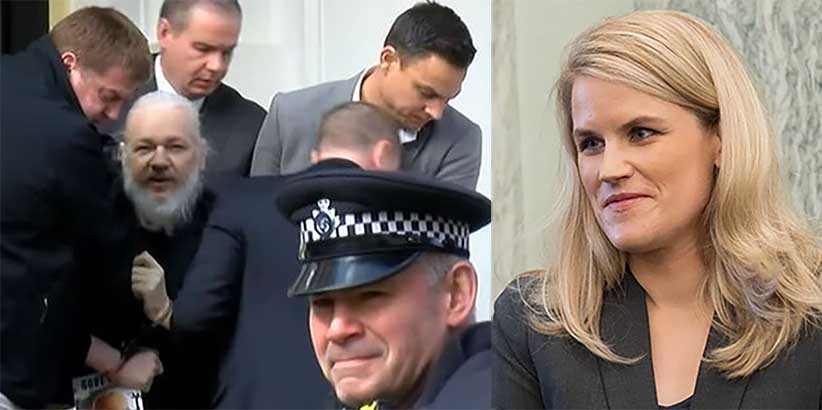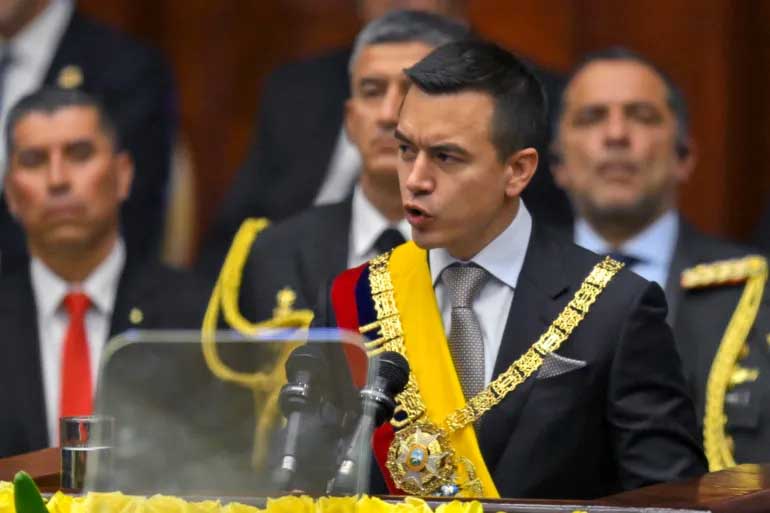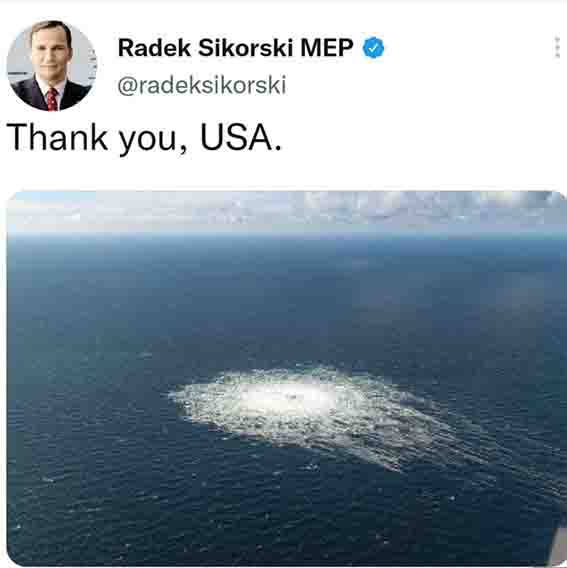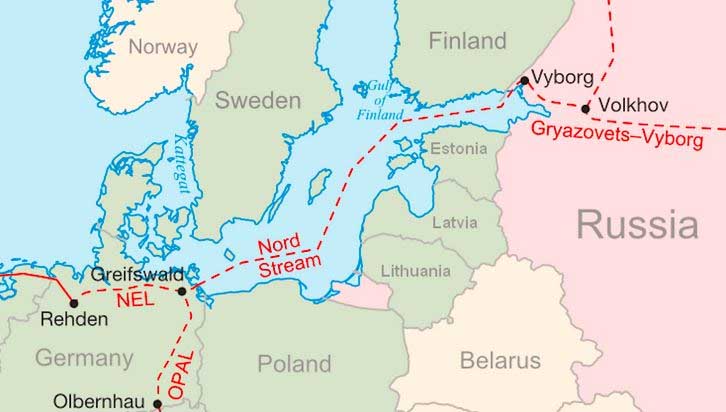Tuesday, February 20. I’m in London for the Julian Assange extradition hearing, 1 and will post later on that. Meanwhile I sit in the Ice Wharf at Camden Lock, spinning out a half of Abbott as I’m driving today, and making free with J D Wetherspoons’ more than adequate bandwidth.
A Naked Capitalism piece leaps out at me. It concerns Ecuador, where my daughter worked until decamping last month to next door Columbia, and whose Lenin Moreno government sold Julian to the Devil. 2

I’d been alerted a while ago by Andrew Korybko to Moscow’s displeasure at Russian-supplied arms sold on – in breach of contract, as we’ll see – without Russia’s approval. On whose say-so? That would be Moreno’s successor, Daniel Noboa – son of Ecuador’s richest man, blessed with youthful good looks …

Daniel Noboa at his 2023 inauguration as Ecuador’s youngest ever president
… and like many a dutiful comprador, US groomed educated.
Noboa called the shipments “worthless scrap metal” but US Secretary of State Blinken sang to a different tune. The Ecuador shipments would be forwarded to Ukraine, he announced, for the express purpose of killing Russians.
Moscow hit back with an embargo on Ecuador bananas. Not only are these the latter’s numero tres export, in a market where the law of supply and demand does not favour the producer, but Russians spend a good deal more on bananas – nine out of every ten from Ecuador – than the paltry $200m Quito got for its “scrap metal”.
Duh! Noboa is not the only national leader to sacrifice the interests of his economy on the altar of DC’s losing war on Russia. But Ecuador’s Big Bananas, wielding more clout than German manufacturers bled white by soaring energy bills and consequent loss of competitiveness …
[ezcol_2fifth] [/ezcol_2fifth] [ezcol_3fifth_end]
[/ezcol_2fifth] [ezcol_3fifth_end] Washington’s economic terrorism and environmental vandalism matched by Berlin’s economic suicide. [/ezcol_3fifth_end]
Washington’s economic terrorism and environmental vandalism matched by Berlin’s economic suicide. [/ezcol_3fifth_end]
… made Señor Noboa an offer he couldn’t refuse.
Nick Corbishley, cited here for the second time in two days, takes up this tale of climbdown in Quito:
Russia Lifts Suspension on Imports of Ecuadorian Bananas After Collapse of US-Ecuador Arms Deal
February 20, 2024
Another embarrassing setback for US foreign policy, this time in its so-called “back yard” (or as Biden calls it, “front yard”).
Well, that didn’t take long. Ecuador’s “Weapons or Bananas?” dilemma appears to be over, just weeks after it began, leaving mucho huevo on the face of both US and Ecuadorian government officials. On Friday (Feb 16), the Russian government announced it was lifting its ban on the imports of bananas from 5 Ecuadorian companies, which threatened to bankrupt many Ecuadorian banana growers. The Head of Russia’s Federal Service of Veterinary and Phytosanitary Supervision (Rosselkhoznadzor), Sergey Dankvert said:
“We officially announce that at 4 pm Moscow time on Monday we will have a video-conference with Ecuador’s agricultural watchdog. Today, we announce that the five Ecuadoran companies will be able to continue supplying [the Russian market] on the conditions of guarantees of Ecuador’s service. We will discuss technical details later on.”
The reason for the change of course had nothing to do with bananas and everything to do with Russian weapons and the war in Ukraine.
On January 10, the President of Ecuador, Daniel Noboa, announced that his country would deliver unused Russian military machinery to the United States in exchange for $200 million of US-made weaponry for Quito’s escalating war on the drug cartels. The Russian weapons would then be sent to Ukraine for its defence, though this was strenuously denied by Noboa, who insisted the weapons were nothing more than worthless scrap metal.
Russian authorities declaimed that Noboa’s announcement violated the military treaty signed in 2008 that prevents buyers of Russian weapons from selling or donating them to other countries without Moscow’s prior authorisation. Moscow’s response was to place an import ban on five Ecuadorian banana exporters citing an alleged infestation of humpback flies in a shipment of bananas from the Andean nation.
A few days later, a total ban on the import of Ecuadorian carnations was also announced after other pests had been detected in the flowers. In addition, the Netherlands, Germany, Latvia and Lithuania were asked to block the entry of carnations from Ecuador. The Russian authorities warned the countries that if they did not restrict the entry of carnations, restrictive measures would be applied against other types of flowers coming from their territory.
Days later, other banana exporters were added to the ban. Russia was also talking about substituting Ecuadorian bananas, which account for nine out of ten bananas consumed in the country, with supplies of the yellow fruit from India, Egypt, China, Korea and Thailand. As I warned in my previous article on the topic, Russia’s retaliatory measures could be the final straw for Ecuador’s foundering economy, for which bananas are the third most important export product, after crude oil and crustaceans:
[Ecuador] is the world’s largest exporter of bananas and Russia is its second biggest customer after the European Union. “Russia is an extremely important market for our country’s banana producers and exporters,” said the Association of Banana Exporters of Ecuador (AEBE) in a press release:
“It is the final destination of 21% of all banana exports. 1.46 million crates [of the fruit] are sent weekly to Russia, meaning that this market generates around $757 million per year… In addition, 25,000 workers work across the nation on plantations dedicated to supplying this market, which is particularly important for small producers.”…
Ecuador’s banana growers are already hurting. As the Ecuadorian economist Pablo Dávalos notes, they are bearing the brunt of the fallout from Noboa’s decision to involve the country in the Ukraine conflict and there are no compensatory measures in place. At a recent rally, Fulto Serrano, a representative of Oro farmers group, said the sole cause of the problem was the government’s donation of Russian-made weapons. Noboa, he said, will not be affected by the closure of the Russian market, while thousands of farmers around the country will. The result will be a glut of bananas, leading to a collapse in the price.
U-Turn Time
Ecuador’s government has finally blinked, though some US media outlets, including Bloomberg, have been bizarrely making the opposite claim — that it was Russia that had reversed course following concerns in the Kremlin about a potential banana shortage in the coming months. As Putin said in his recent interview with Tucker Carlson, “in the world of propaganda it is very difficult to beat the United States.”
On Friday afternoon, Ecuador’s Trade Minister Sonsoles García confirmed on X that the Russian embargo on five banana exporting companies had been lifted …
Read the full piece at Naked Capitalism …
* * *
- I use the term, extradition hearing, loosely. Under a due process as labyrinthine as it is subordinate to realpolitik on matters of non negotiable importance to power – which in this case means doing US bidding – Team Julian is petitioning for leave to appeal. Even under the best outcome of this hearing at the Royal Courts of so-called Justice, Julian will not be leaving Belmarsh any time soon.
- From 2007 to 2013, Lenin Moreno was Ecuador’s vice president, under President Rafael Correa. As candidate for Correa’s social democratic PAIS Alliance, he won narrowly in 2017 but then distanced himself from Correa’s leftism. (By the end of his term, Moreno had an approval rating of 9%, the lowest in Ecuadorian history.) By such twists of fate was Julian’s fate not so much decided as blown like a leaf in the wind.

“New arms for old! New arms for old”
Don’t you just love the pantomime season.
Oh no I don’t!
It’s behind you.